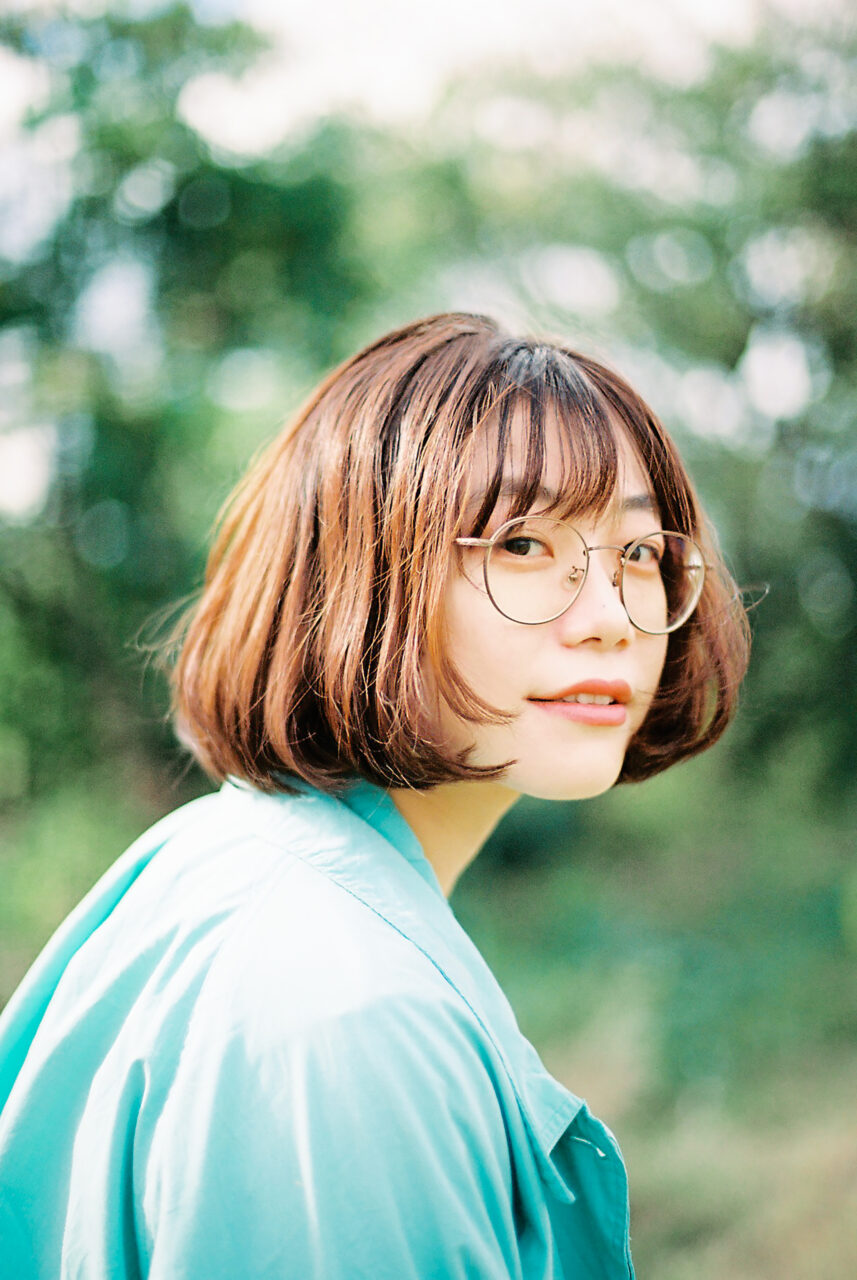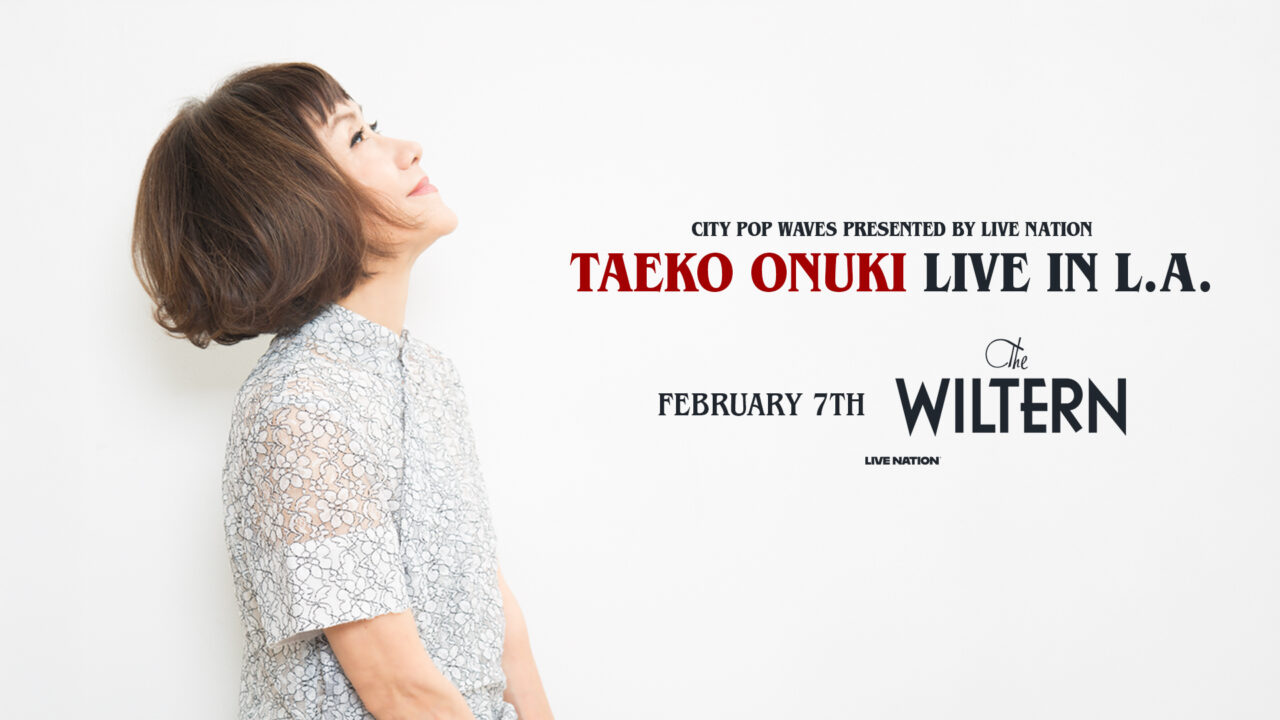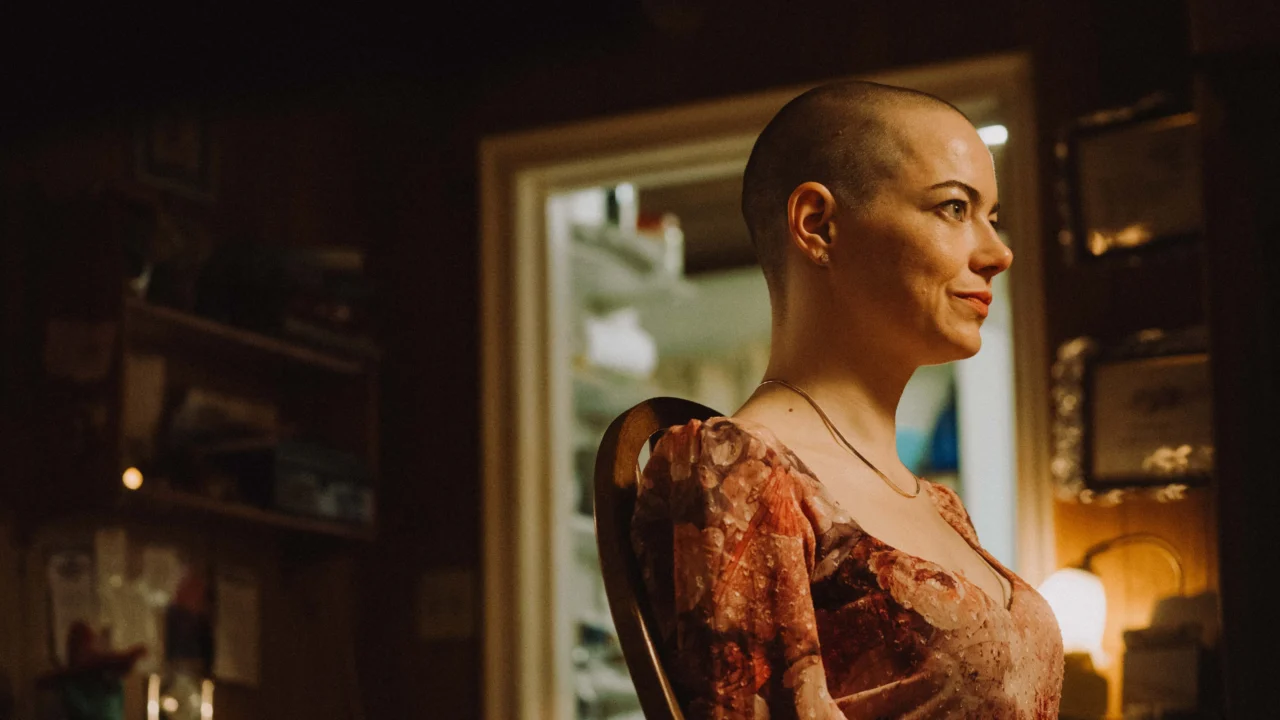Miran, renowned in NiEW for her exchange diaries with Ban Obara in “With Cheeks on the Windowsill,” initially crossed paths with the author during the release of her EP “The Day I Played with a Peachy Pelican” (2021). This marked her inaugural interview, where, despite certain areas of immaturity in songwriting and arranging, her commanding singing style and genuine joy in public expression and interaction set her apart from other singer-songwriters. In essence, she seemed destined for a protagonist’s role.
Fast forward two years, and Miran’s endeavors have expanded rapidly. Under the production of Keiichi Sogabe (Sunny Day Service), “Low Airplane” became the theme song for the movie “Ai ni Neri” (It’s All About Love), leading to her album debut with “Ducky.” Subsequently, she consistently released singles and even ventured into acting, gracing the red carpet for her role in the film “Strange Lovers from a Different Planet.” While rooted in the Kansai region, she made a significant move to Tokyo this year.
Her latest album, “WATASHIBOSHI,” completed amidst this whirlwind of activity, eloquently captures the ongoing narrative of her growth and evolution. In this extensive two-and-a-half-hour interview, Miran reflects on her musical journey over the past year and shares her sentiments about this latest album.
INDEX
A Determined Approach: “Let’s Do It!”
– “From your previous album, ‘Ducky,’ released last March, to your latest album, ‘WATASHIBOSHI,’ it seems you’ve maintained a rapid pace with live performances and single releases. How would you describe your own journey and experience during this time?”
Miran: “Ducky” was also an album that I worked very hard to complete, but it passed in an instant. In September, we released a single, “Natsu no Boku ni Mine ni” (To Me in the Summer).
– I hope you keep up the momentum and keep going and going.
Miran: We had a schedule to complete this album, so we were just trying to get through to this point.

is a singer-songwriter born in 1999. In 2020, she released her first album “Houfu”, which was produced by home recording, followed by the release of many other albums. He produced and released his second album “Ducky”. Later, with Yusuke Kume (Special Favorite Music) as producer, she released “Natsu no boku ni mo me ni”, “Lemon tree”, and “Like it or not”, which were featured on Fuji TV’s “Love music”, and she also wrote an exchange diary with writer Ban Obara in the culture media NiEW. On December 13, 2023, he will release his new album “WATASHIBOSHI”.
-What did you do as motivation in the midst of that busy schedule?
Miran: I remember last September to October was the busiest time for me. I had a part-time job, did a lot of recording and studio practice, had a lot of live shows, and even traveled to Nagoya. But I think I can manage somehow. I knew that if I didn’t manage this schedule as a matter of course, I wouldn’t be able to go on to the next one, so I was like, “I’ll do it! I’ll do it! I am stronger now.
-I started working with Yusuke Kume of Special Favorite Music (SFM), who produced “WATASHIBOSHI,” on the album “Natsu no Boku ni Mimo” (released in September 2022), which I mentioned earlier. Miran: “Ducky” was released in September 2022.
Miran: “Ducky” was a work that we made while regularly going into the studio for sessions, and we managed to make something interesting despite being burned out, but when it came time to work on another album, I thought, “I can’t take full responsibility for this…! I can’t take full responsibility for this…! I thought, “I can’t take full responsibility for this…! I decided to ask for help from others. I knew that Kume-san does a lot of production and commercial work, so I thought I would like to ask him for help, and Shinya Ogino, who did the mix for “Ducky,” introduced me to him.

-So you started working with Kume for the album from there.
Miran: No, at first we were only going to do “Even for Me in Summer. Mr. Kume was living in Osaka at the time, so I visited him at his home and we had a great time talking and working on the arrangements. I thought, “I want to ask him to do the whole album.
-What kind of communication did you have for “Natsu no Boku Nimo”?
Miran: I told him that I wanted to keep the elements of acoustic guitar playing, and that I wanted to include a lot of key points so that it would look good live. Kume-san came up with the band arrangement, and I was so impressed with the balance of the drums, guitar, and bass that I thought, “This is something I couldn’t do with “Ducky.” I was so impressed that I thought, “This is something I couldn’t do with “Ducky.” Since “Meet the Dragon” was already in the works, the arrangement and recording was done quickly and easily, as if it was an added bonus.
-How did you proceed with the recording process for the album, starting with these two songs?
Miran: We were planning to release a few singles before the album, so we recorded a second time in October 2022 and a third time in Tokyo in March 2023. I hadn’t thought about moving to Tokyo at all, but the people who supported me kept moving to Tokyo. Mr. Kume and Yuto Sawai (bass guitar) of Nekko-Sen also moved to Tokyo. I started to wonder if I should move to Tokyo.


INDEX
Unexpected Red Carpet Moment
-What did you record for the second recording session in October?
Miran: “In Love,” “More Futari,” “As You Like It,” and “Lemon Tree. “. 4 songs. I was told about the movie “Strange Lovers on a Different Planet” at this point, so it was a must to complete the theme song “Be in Love” and the insert song “More Together”.
-How did you write the theme song, “Fall in Love”?
Miran: I wrote it while talking with the director, Satoshi Kimura, and reading the script. The director told me to “make it freely,” but I tried not to deviate too much from the story. The second scene in the film, “I didn’t do anything so wrong that I can be blamed for pointing fingers,” is a specific scene itself.
-The flow from the C melody to the last chorus and outro has a showcase for each part, and the overall arrangement is very sparkling.
Miran: I had an image of people crossing paths like in a trendy drama, while at the same time keeping it pop enough to be widely accepted. I still have the list of reference sounds I gave Mr. Kume on my cell phone. Eiichi Otaki’s “Kimi ha natu shiroi”, Ohashi Trio’s “Dazzling encounter”, Neko Sen’s “Satellite”, Rei’s “Smlile! Smlile! with Fujiwara Sakura”…… I see, I see.
-You also acted in this movie. What was your first acting experience?
Miran: I never imagined that I would be walking the red carpet at the “Tokyo International Film Festival.” But unlike music, which is mainly performed by myself, it was interesting to experience how to behave in order to get the director to give me an OK, rather than whether I was satisfied with my performance. As we went through several takes, I began to understand what kind of ideals he was looking for. It was a sense of learning the joy of being involved in other people’s work.
-You played the role of Shuko Nakayama, a musician, very naturally, but it was a completely different character from your usual personality, wasn’t it, Miran?
Miran: I am not someone who can say things as outspoken as Shuko, so it was nice and interesting to try saying things that I don’t have in my mind.
-I love that line in the Kansai dialect at the end of the scene.
Miran: There it is (laughs). A turn of phrase that would never come from me. I think she is a person who has a strong sense of pride. But he also has a cute side that makes you fall in love with him.
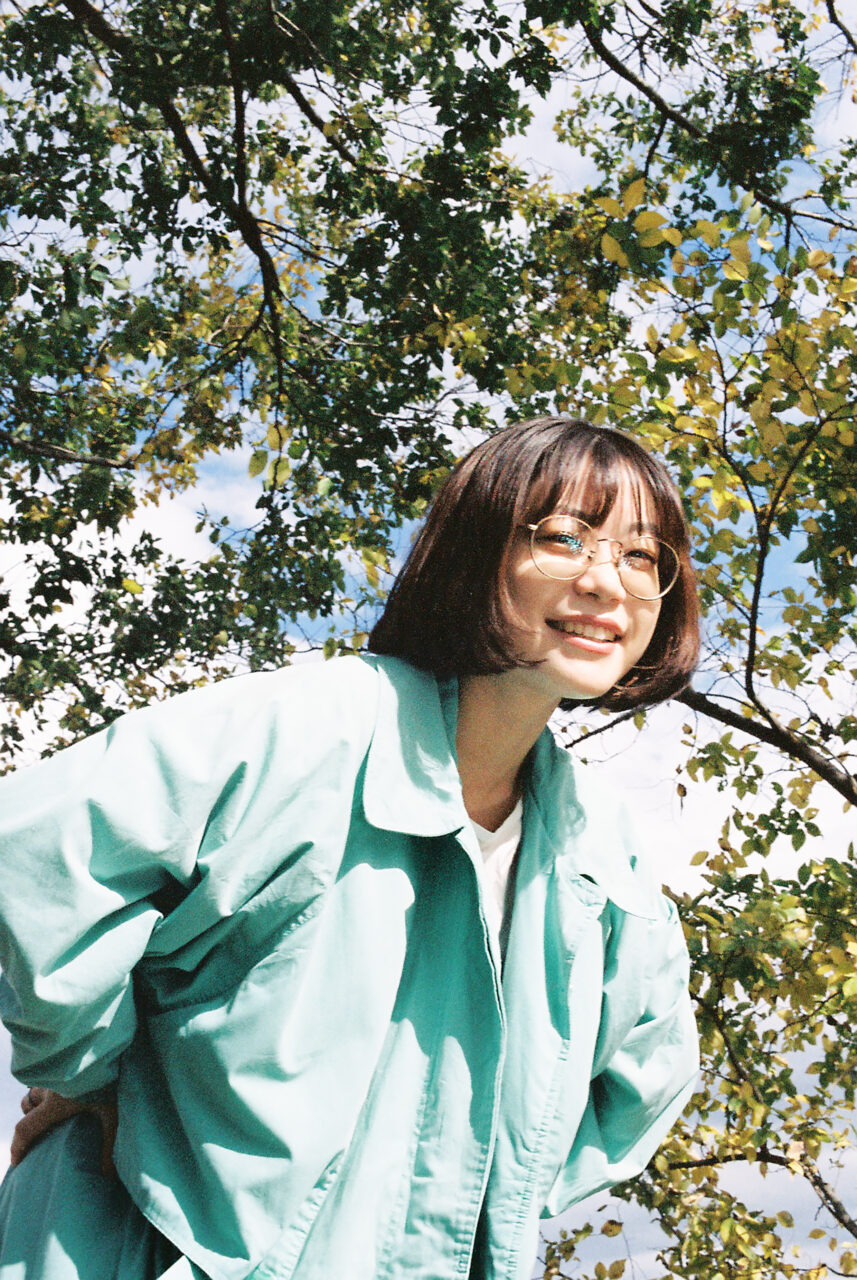
– You are also from the Kansai region, but you are not as cutesy as Shuko.
Miran: That’s why it was difficult. I had to practice a lot because the Kansai dialect tends to lower the tone of my voice. I would like to continue to do a lot of acting in the future, and if possible, I would like to play a role in standard Japanese next time.
– I would like to play a role in standard Japanese next time, if possible.
Miran: It’s a song that I’ve had since the beginning of my career, and I pulled it out because I thought its slightly damp feel would suit Shuko.
– The song was recorded with Issei Bonmaru of Bellmints on gut guitar.
Miran: I wanted to use a gut guitar on “More Futari” and “Lemon Tree,” but I only had a cheap one. I heard that Bonmarukun had one, so I asked him to lend it to me. I asked him to bring it to the studio where we were recording, but Mr. Kume recklessly said, “It’s your guitar, so maybe Bonmaru should play it. (Laughs). Then Bonmaru got on board and came up with phrases for the interludes, which made for an interesting recording.
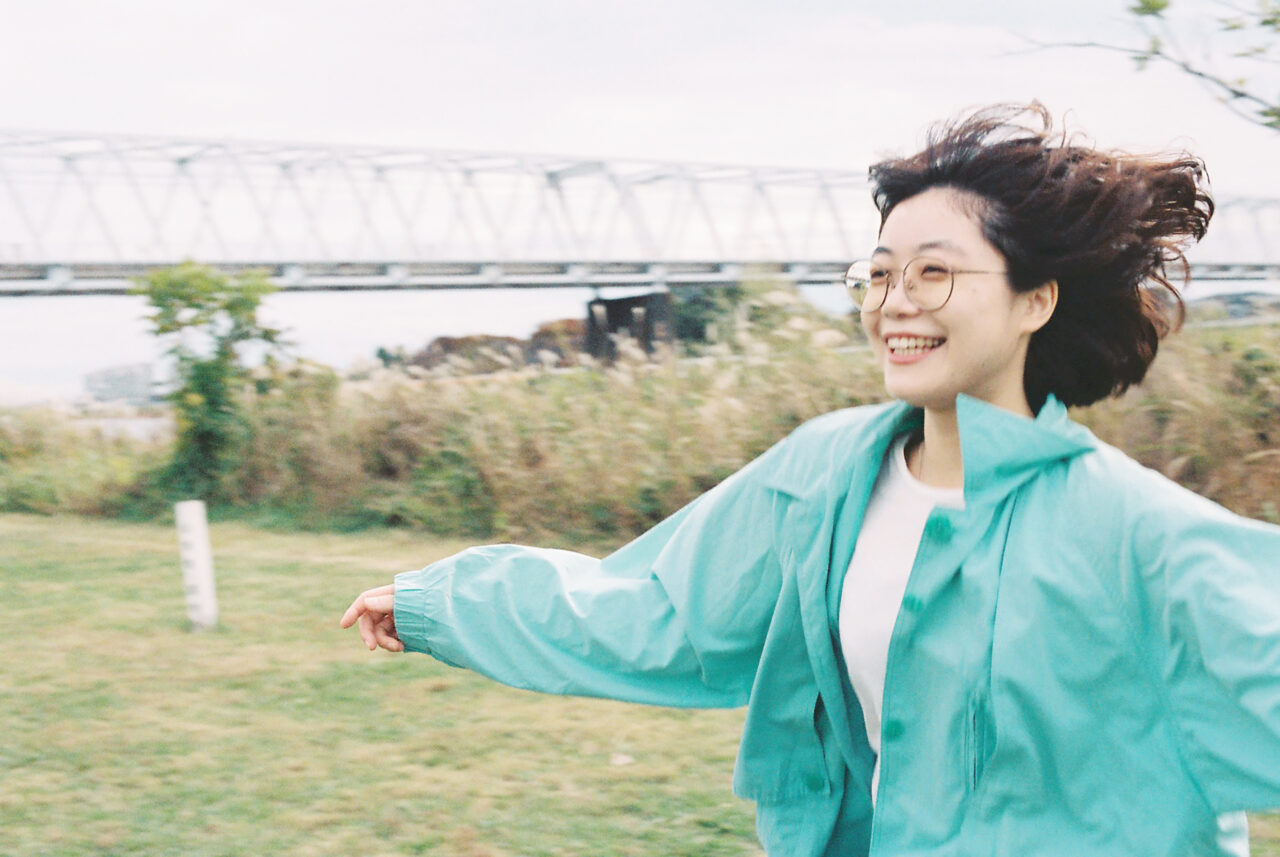
INDEX
Solo Acoustic Performance is the Most Effective Mean of Expressing both Melody and Lyrics
-The song “Lemon Tree” features only Miran’s guitar and Tsugumi Yasuda’s violin, which makes it unique on the album. It is one of the most unique songs on the album.
Miran: I borrowed Bonmaru’s gut guitar for this one, and I played it. I thought this was good enough from the time I made the song as a solo piece, so I thought it would be better to have only the guitar playing and the violin accompanying the guitar playing instead of the band. I remember that Kume-san wrote the score exactly for Yasuda-san to play, and again I thought it was great.
– Miran, your live performances are basically storytelling, but sometimes you play with a band.
Miran: To be honest, I haven’t quite grasped the band yet, but I feel like I’m just trying my best to perform with the feeling that Miran, the singer-songwriter, is here. The level of the members is getting higher and higher, so I don’t want to drag them down. But I have been playing and singing for about six years now, and I think I have a better idea of what I should be showing off. I think I can express my singing and lyrics best when I play and sing.
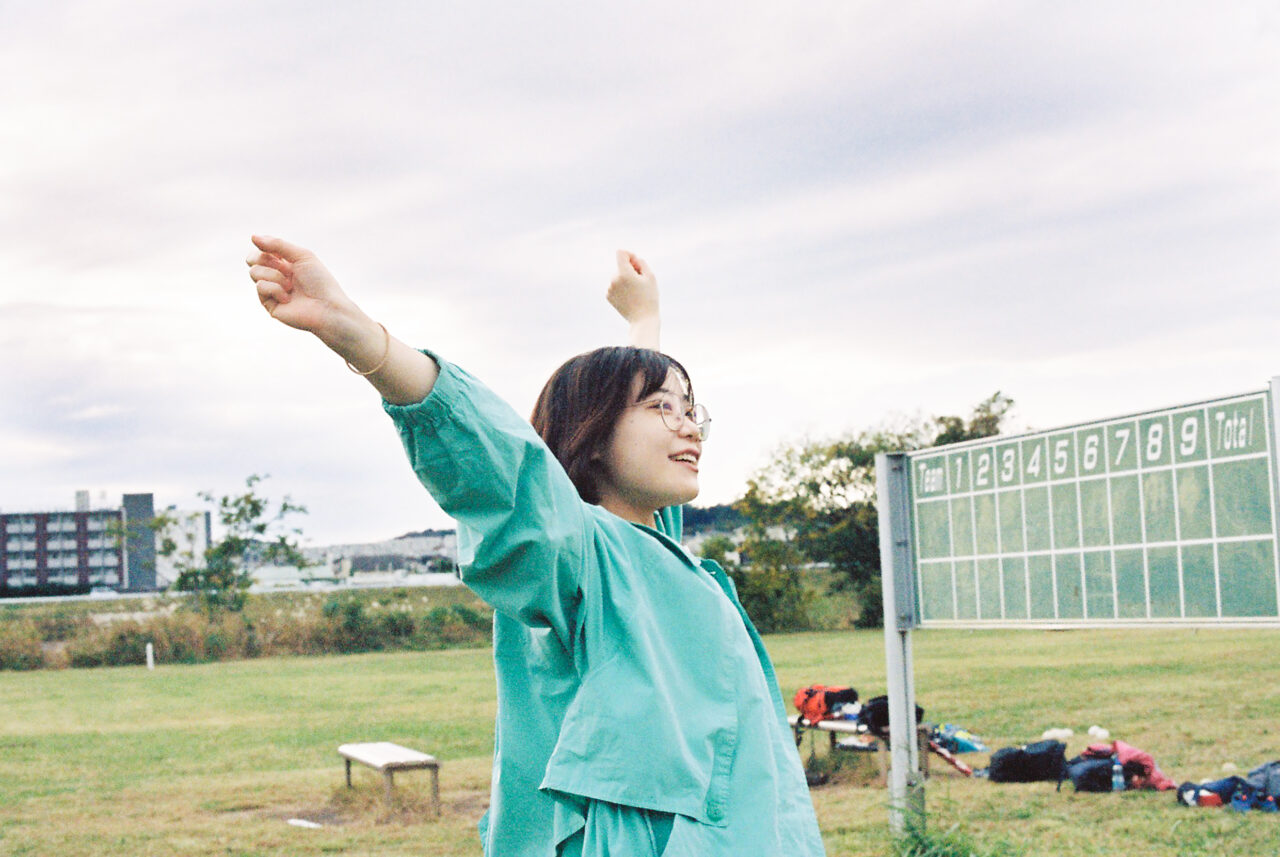
-When did you start to gain confidence in your storytelling?
Miran: But really only recently. At the one-man show at Shimokitazawa 440 last December, I thought so much about it that I even wrote down every word I was going to say during the MC session on a piece of paper.
-That must have been kind of tough.
Miran: That’s right (laughs). (Laughs.) During this period, I was in a hotel in Tokyo for a while because I had started filming a movie. I’ve been working on the album for a long time, and I’ve always been very preoccupied that I had to do it right. I had a studio nearby and was practicing by myself, thinking about the one-man show, but I had to decide on the flow and what I was going to say. I was really sorry to the audience, but it wasn’t a very good feeling. That is why it is best to sing the songs you feel like singing on a particular day. This is when I realized that I should try to sing in a natural way.
INDEX
The Importance of Being True to Yourself, Contemplating the Essence of Living as a Woman
-There are six songs so far. And the last recording was done in March this year.
Miran: Yes, that’s right. By this time, I had a clear idea of what direction I wanted the album to take, so I started to finish the rest. We had been working basically in Kansai, but we all gathered in Tokyo and invited Yusuke Okada (BROTHER SUN SISTER MOON) as a new drummer.
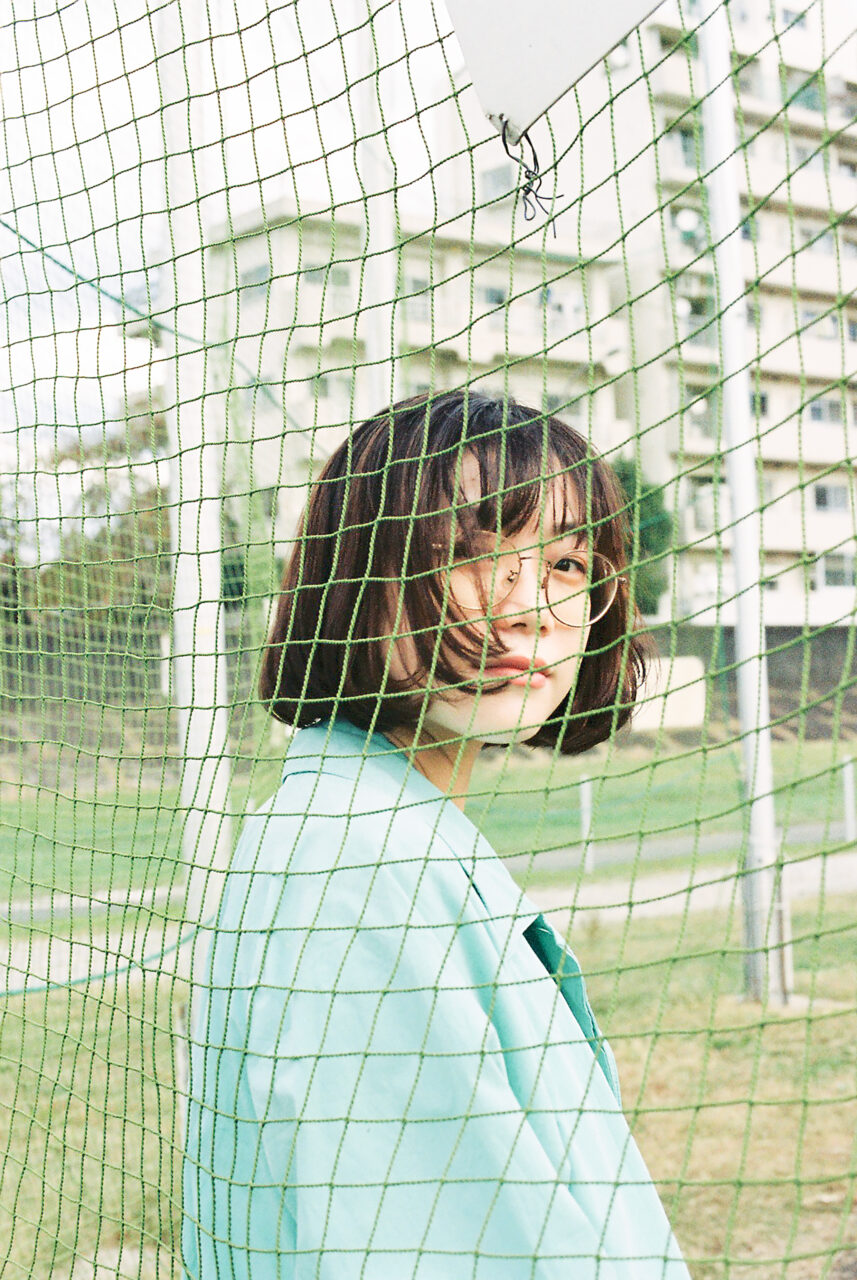
-The songs we recorded were “A Night of Giving,” “My Heart,” and “Umi ni Naru” (Becoming the Sea), We recorded four songs, “The Night You Are Given,” “My Heart,” “Become the Sea,” and “Angel’s Kiss. What direction did you see for the album?
Miran: I think that many of the songs on “Ducky” were sung with “you” as the main character rather than my feelings. When I sang about my feelings, the songs tended to be dark, so I wanted to swing towards a brighter side.
-When I interviewed you two years ago, you said that “Sail Wind” (2020) was dark because it showed your subtly conflicted self around the age of 20.
Miran: Yes, yes. But around the time “Falling in Love” was written, I wanted to sing about myself with importance, and I became confident that now that I had more experience, I could write a song that would not be dark. The title “WATASHIBOSHI” is also related to the fact that I wanted to create a work in which I am thinking about the night sky and the starry skies. That’s why the first person in most of the lyrics has been “I”, but in “My Heart” and “Tenshi no Kiss” I consciously sing “I”.
-I feel that the lyrics of “My Heart” are especially sunny and even tough. <Especially the part “I’ve grown up to the point where people say I’m mature, my heart has hardened, and I want to be the same tomorrow.
Miran: Yes, I feel that we have created a strong song. All of these four songs would look good with a band, and because I enjoyed this last recording session, I felt that if I moved to Tokyo, I would be able to perform live with the band members, which helped me decide to move to Tokyo. We worked on the album while building relationships, and thanks to everyone’s support, I feel like I was able to give 120% of what I can do now. I am very satisfied with what I was able to achieve with the band this time, so I would like to make my next album by recording at home.
-Miran: I think it has been a year of challenges, but now that you have been active and met new friends, you can see a new landscape again.
Miran : Outside of music, it was also significant that I became good friends with Minami Obara, with whom I am now doing a series of exchange diary entries in NiEW. As I talked with her about many things, I began to think about the importance of being honest and the meaning of my life as a woman, and I actually wrote the lyrics to “My Heart” while thinking of Ban-chan. Meeting Lan-chan was one of the most joyful moments of the last year.
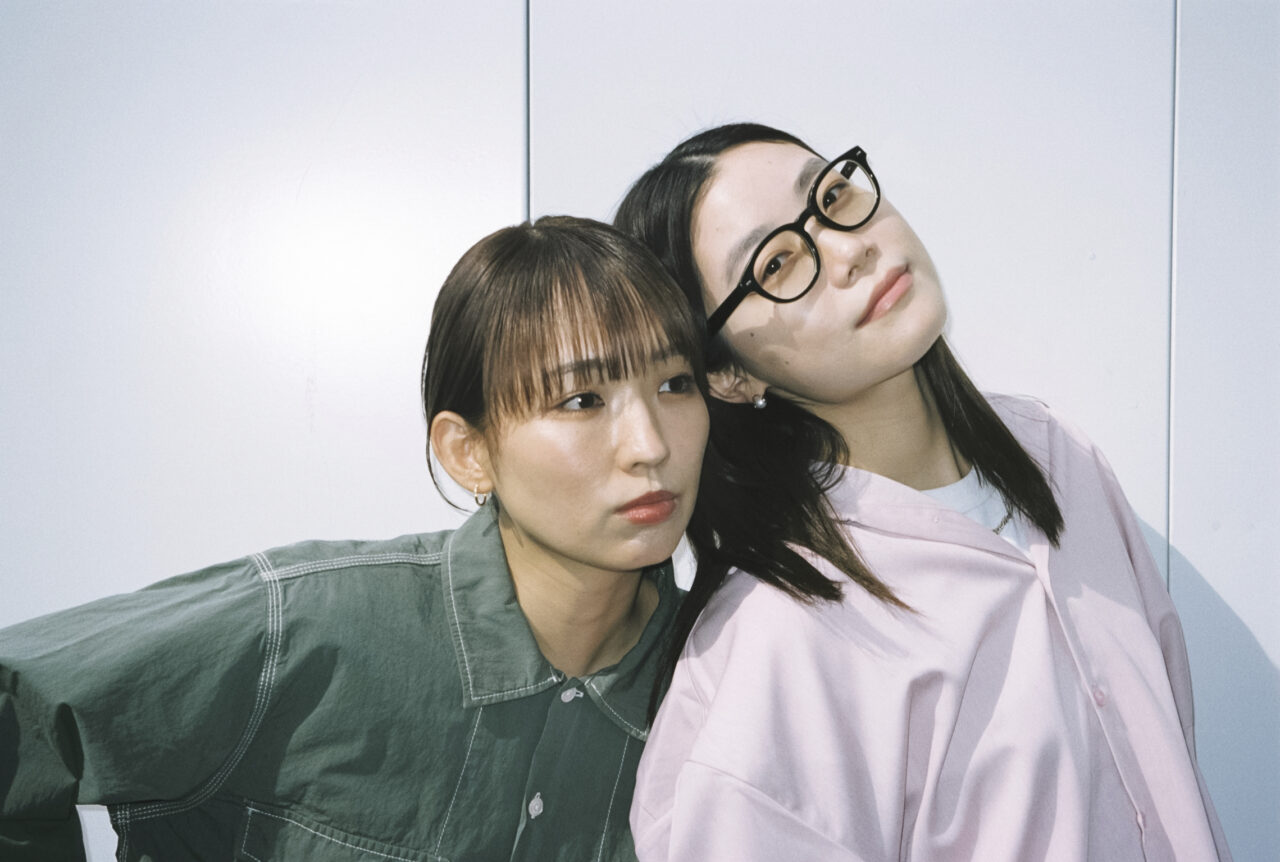
-I think it is a big change for you to be able to affirm yourself like that. I would like to ask you a little more about the reason for this.
Miran: There were so many things that I didn’t know if I could do or not, but there was nothing that I couldn’t do. Of course, not everything was done to my satisfaction, and I am indebted to the help of many people, but what I was able to do was done, and I give myself a big pat on the back. I am now able to inspire myself with the undeniable fact that what I have accumulated through the repetition of this process is still there. But I am always on the edge. When I feel like I’m going to break, I call all my friends. And they all laugh at me because they are all on the same edge. I tell them that I have no choice but to do it, and now I’m managing somehow.
-I can see the same sense of urgency in the serialization of your work with Mr. Obara. How did you become friends with Mr. Obara in the first place?
Miran: I went to a bookstore near my house at the time, and they happened to be holding a book signing to celebrate the publication of Ban-chan’s essay collection “Is This a Life? I took the opportunity to get his autograph, bought the book, and read it, and it was really good. I wanted to get to know this person, so I contacted her on SNS and we hit it off, and we ended up going out to dinner. Meeting Yoru-chan was one of the best things that happened to me last year.
-It was an amazing coincidence. What was it about Mr. Obara that inspired you?
Miran: You have a very cool way of life and a firm idea about making money doing what you love. As a craftsman, I also feel that I have to live a strong life, and I was really happy to find someone I could talk to straight away about that.
-Since you moved to Tokyo, I often see you on Instagram with other artists such as Kanafan of kiss the gambler and Nagisa Murakami. It’s nice to have reliable friends who are also singer-songwriters.
Miran: They are a reassuring presence that I can go see if I get lonely. I’ve been friends with both of them for the past year or so, and I’m just as grateful for them as I am for Supper.
However, I also feel that we are all very different in the way we approach music. I want to sell my music so that many people can enjoy it, but Nagisa seems to value music in her daily life. Kanafan just wants to play interesting music!i think we are different in age. Our ages are also slightly different, and I am the youngest, so I am spoiled and inspired by her.
